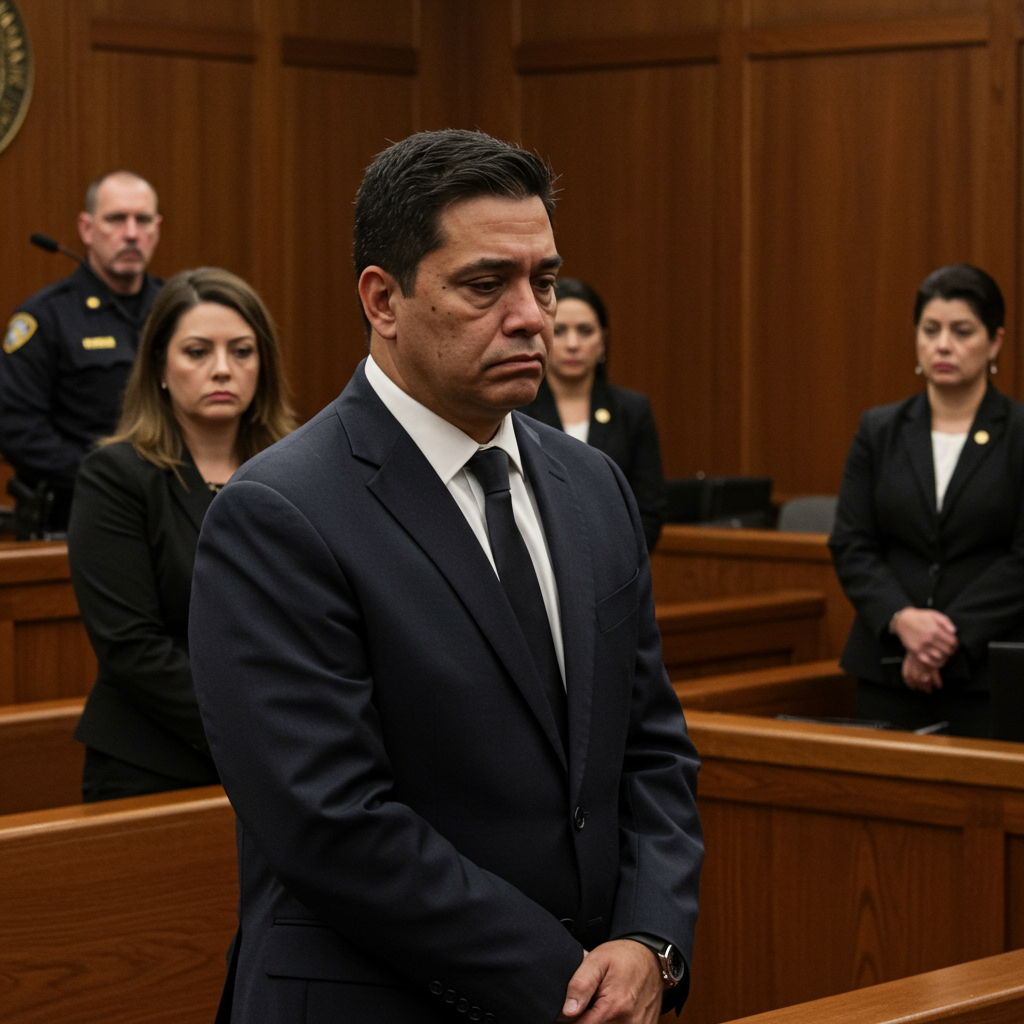A California doctor has agreed to plead guilty to federal charges connected to supplying Friends actor Matthew Perry with ketamine in the weeks leading up to his death. The development marks a significant step in the ongoing investigation into the circumstances surrounding the beloved actor’s passing.
Dr. Salvador Plasencia is set to formally plead guilty to four counts of distributing ketamine. This plea agreement was announced by federal prosecutors on Monday. The charges carry a potential maximum sentence of 40 years in federal prison. The doctor is expected to enter his plea in court in the coming weeks.
Matthew Perry, widely known for his iconic role as Chandler Bing on the hit show Friends, was found dead at his Los Angeles home in October 2023. He was 54. While Perry had been candid about his long struggles with addiction and depression, his sudden death, ruled an accident caused by the acute effects of ketamine, shocked fans worldwide.
Prosecutors allege Dr. Plasencia was part of an underground network involving medical professionals and dealers who supplied Perry with ketamine outside of legitimate medical channels. Investigators state that Perry, who had been receiving legal ketamine treatments for depression, sought additional amounts beyond his prescribed dosage when his clinic would not provide more.
Details of the Alleged Supply Scheme
According to court documents and plea agreements from co-defendants in the case, the scheme involved obtaining and distributing large quantities of the drug to Perry:
Procurement: Plasencia allegedly enlisted the help of another doctor, Dr. Mark Chavez (who has since pleaded guilty and is cooperating), to obtain ketamine vials. Plasencia reportedly purchased these vials from Chavez at a lower cost before significantly marking up the price for Perry.
Supply Timeline & Quantity: Between September 30 and October 12, 2023, just before Perry’s death, Plasencia allegedly sold Perry and his assistant twenty 5ml vials of ketamine, lozenges, and syringes.
Administration: Plasencia is accused of administering ketamine injections to Perry on multiple occasions, including at his home and even in a parking lot.
Teaching the Assistant: Crucially, Plasencia allegedly taught Perry’s live-in personal assistant, Kenneth Iwamasa (who has also pleaded guilty and is cooperating), how to administer the injections and would sell extra vials for them to keep at the house. Iwamasa has admitted injecting Perry, including on the day of his death.
- Financial Transactions: Prosecutors allege Perry paid substantial amounts for this unsupervised supply, reportedly totaling $55,000, including payments of around $12,000 for refills.
- www.bbc.com
- www.pbs.org
- www.nbcnews.com
- www.latimes.com
- www.usatoday.com
Cynical Communications Revealed
Evidence presented in the case, including text messages shared with prosecutors by Dr. Chavez, paints a disturbing picture. Texts attributed to Plasencia allegedly referred to Perry as a “moron” and openly discussed how much the actor would be willing to pay for the drugs. Another text cited in court documents shows Plasencia expressing a desire to become Perry’s exclusive supplier to prevent him from seeking ketamine elsewhere.
Following Perry’s death, Plasencia is also accused of providing falsified documents to authorities, allegedly attempting to misrepresent the medical treatment plan for Perry.
Wider Network and Other Defendants
Dr. Plasencia is one of five individuals initially charged in connection with the distribution of ketamine to Perry. The others include Dr. Mark Chavez, Kenneth Iwamasa (Perry’s assistant), Erik Fleming (an alleged drug dealer), and Jasveen Sangha, described by prosecutors as a “major ketamine dealer” or “Ketamine Queen.”
With Plasencia’s plea agreement, only Jasveen Sangha among the five charged individuals has not pleaded guilty and is currently awaiting trial. Chavez, Iwamasa, and Fleming previously entered guilty pleas and are cooperating with the investigation.
DEA Administrator Anne Milgram commented on the case, stating that Perry’s reliance on outside sources for ketamine began with “unscrupulous doctors who abused their position of trust because they saw him as a payday,” eventually leading to street dealers. She emphasized that Perry’s desperation was met with exploitation.
By agreeing to plead guilty, Dr. Plasencia admitted that his actions in providing ketamine to Matthew Perry and his assistant were “outside the scope of professional practice” and lacked “a legitimate medical purpose.”



